Photo essay: Made in Cambodia
In Cambodia, 70 percent of women are engaged in vulnerable employment; more than 500,000 work in garment and footwear factories. Empowering women to exercise their rights to decent work, UN Trust Fund to End Violence against Women (managed by UN Women on behalf of the UN system) is working closely with partners to ensure discrimination-free work environments in Cambodian factories.
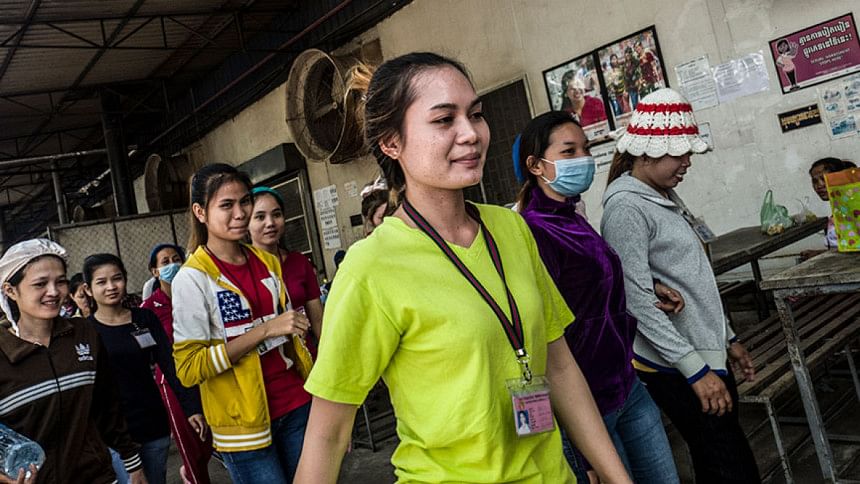
Chhun Srey Sros, 24, lives in Sangkat Chaom Chao and works in a Cambodian factory where UN Trust Fund and its partner, CARE, have developed and distributed educational materials and a sexual harassment policy for the work place. Sixth among 10 siblings, Srey Sros dropped out of school when she was in 10th grade to support herself and her family. She has worked in the garment factory for three years and makes up to $200 per month with over time.
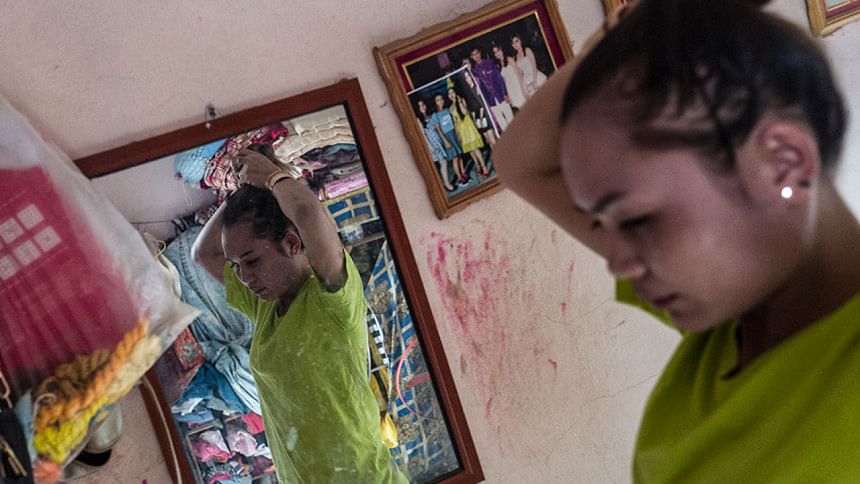
"Cambodian culture says that men are seen as gold and women are seen as cloths. It is not fair. Life as a woman is challenging," says Chhun Srey Sros, . Sexual harassment on the streets or at work is common in Cambodia. Through the UN Women-supported project on sexual harassment in the work place, Srey Sros and many of her colleagues have learnt how to speak out against harassment. The project aims to reach 40,000 garment factory workers between 2013 and 2016.
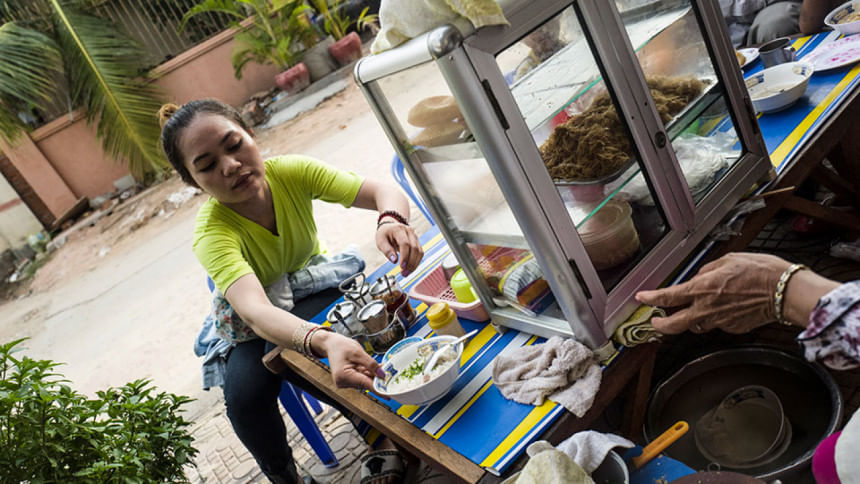
"I eat here every day as Auntie knows how to make it delicious," Srey Sros stops for breakfast near her small rented room in Phnom Penh, which she shares with her siblings. She eats the same breakfast every day of rice porridge, for which she pays 1500 riel (0.3 USD). She starts working at 6.30 a.m. every day, and finishes by 3.30 p.m, unless she is working overtime.
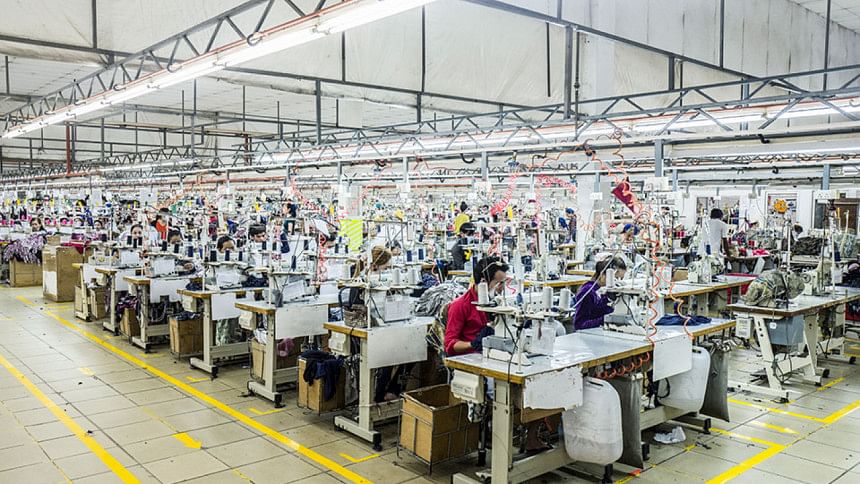
"Since the project on sexual harassment started I have learnt a lot. I understood how we can stop sexual harassment by standing together."
Srey Sros has worked her way up to a supervisor and heads a section responsible for cutting hems for the garments made at the factory.
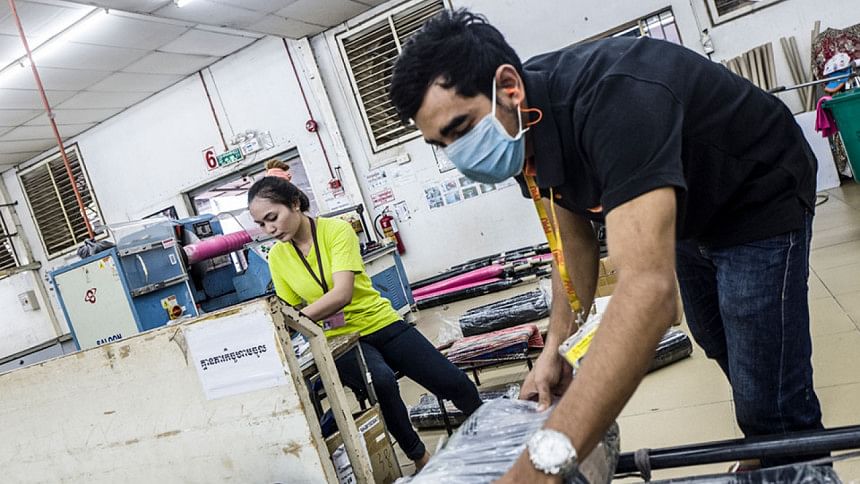
"I have worked here for the past three years. After my father passed away, my nine siblings and I had to work to support the family. My sisters all work in this factory or in factories close by."
The factory in Sangkat Chaom Chao where Srey Sros works is at the forefront in addressing and fighting sexual harassment in the work place. The project on sexual harassment helped create a sexual harassment campaign in the factory, and the factory has now adopted a policy that encourages workers to report harassment and ensures that actions would be taken against the perpetrators.
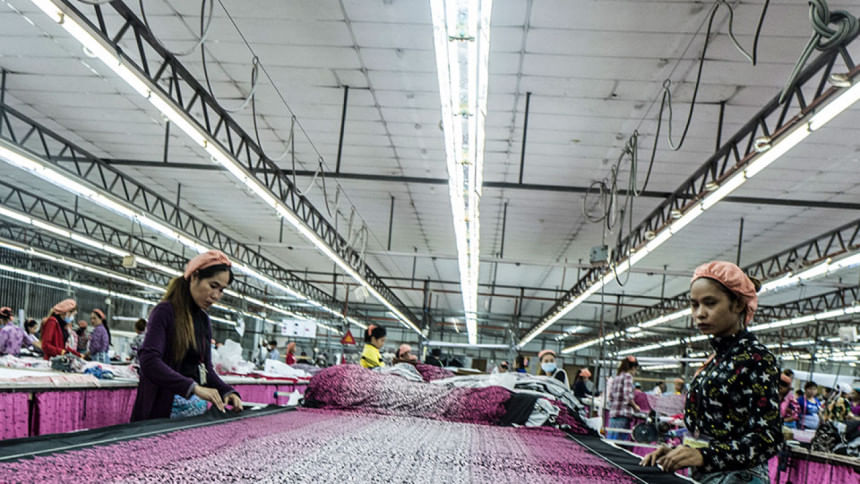
"Preventing sexual harassment means to empower women at the workplace," says Srey Sros. "When sexual harassment takes place, it doesn't only affect an individual, it affects at a collective level."
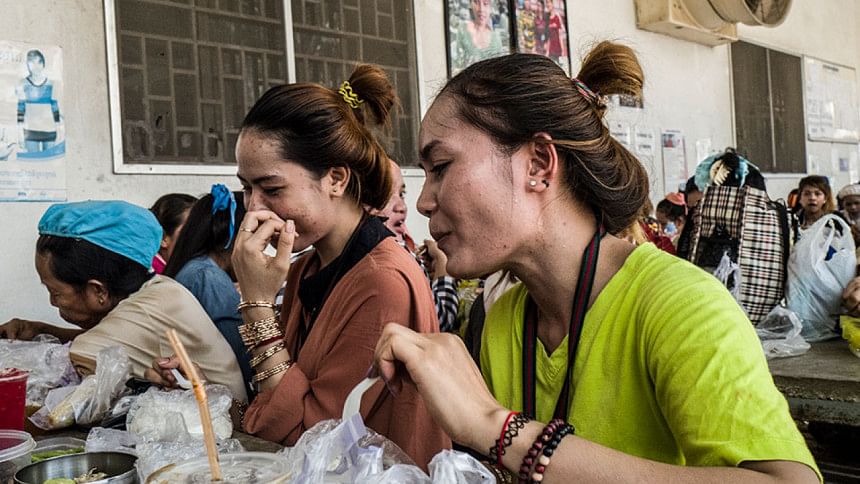
Srey Sros, enjoys lunch with her sister Srey Roth, who is 23 years old. "I have many friends at the factory, including my sister. Lunch is a very social time, even if it´s a bit short. Khmer Sour Soup is my favorite food".
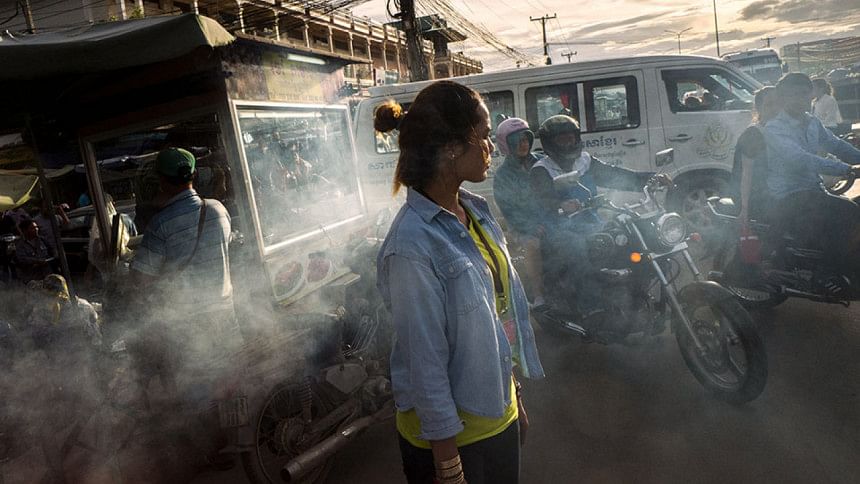
Srey Sros walks through a market in Sangkat Chaom Chao, shopping for food, on her way back home from the factory. She would go home and cook dinner while listening to the radio. She doesn't have a television set. But she keeps the volume low, so that her neighbours are not disturbed.
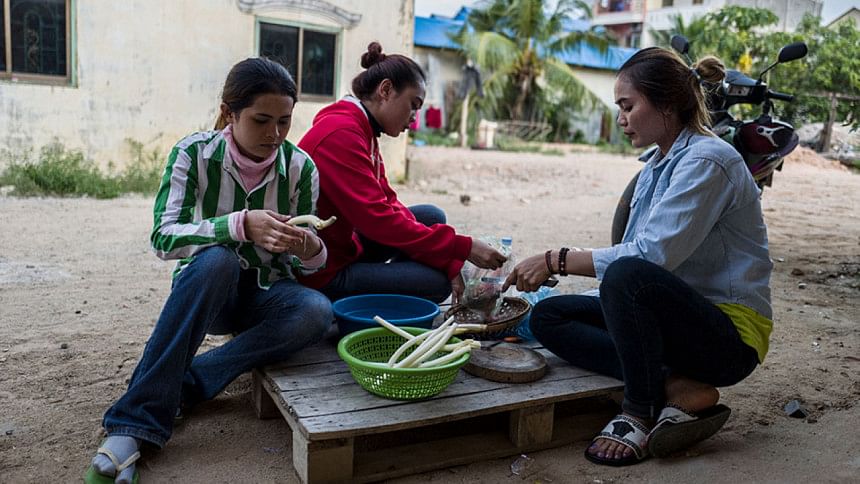
"Women in my community are sometimes scared of being outside late because they neighbors speak badly of them. If we stay outside the house overnight, we are called names and judged." Srey Sros tries to go home before dark, to avoid rumors. But the project has empowered her to speak out against this discrimination. "It´s not justice, and it is not fair," she says.
Her dream is to save enough money to own a grocery store in her hometown and start a family.
All photos: UN Women Cambodia/Charles Fox
This story was replicated from the UN Women website. The Daily Star is an official partner of UN Women's Step It Up! Media Compact, an alliance of media organisations committed to playing an active role in advancing gender issues within the framework of the Sustainable Development Goals (SDGs).

 For all latest news, follow The Daily Star's Google News channel.
For all latest news, follow The Daily Star's Google News channel. 


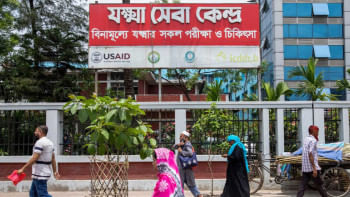
Comments